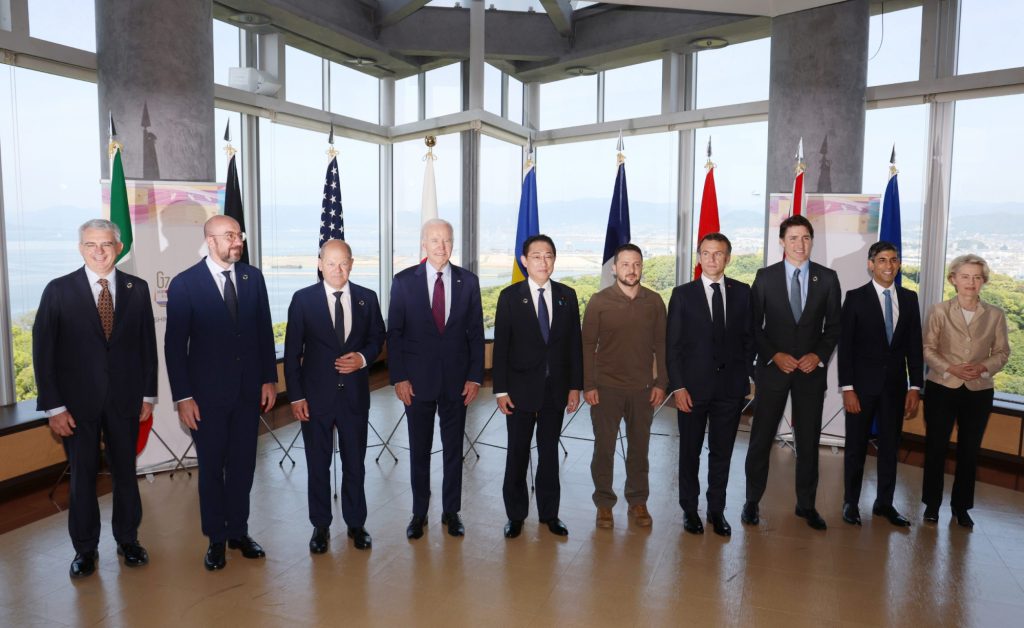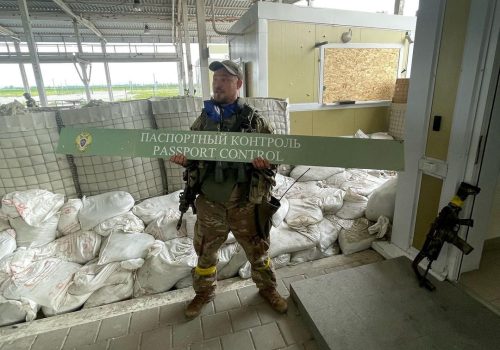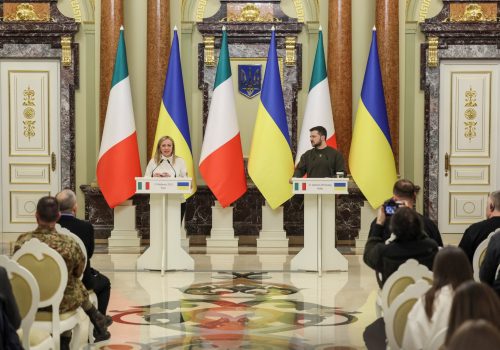Russian Security Council Secretary Nikolay Patrushev gave a lengthy interview to Russian publication Izvestia in early May that read like a script for Russian officials and sympathisers seeking to justify the invasion of Ukraine. Patrushev’s arguments should not be taken lightly; he is one the most influential figures in today’s Russia, perhaps the second most powerful person in the country after President Putin himself.
Ukraine and its partners ought to push back against and debunk many of Patrushev’s assertions and theories. In particular, Patrushev made several references to British geographer Halford Mackinder and his so-called “Heartland Theory” of geopolitics, which the Russian official identified as the inspiration behind NATO’s eastward enlargement since 1997 and its support for Ukraine since 2014.
In his 1904 article The Geographical Pivot of History, Mackinder conceived of a global struggle between sea powers and land powers, with Britain, the United States, and Japan representing the foremost sea powers, and Russia, Germany, and Austria-Hungary the leading land powers. Mackinder ascribed a special importance to the area approximating to modern Ukraine, Belarus, and Western Russia, which he called the Heartland within the Eurasian World Island, and which he said was largely impervious to coercion by the sea powers. Who controls the Heartland, argued Mackinder, controls the World Island, and therefore the world.
Mackinder’s ideas have long held a fascination for those inclined to deterministic and reductive interpretations of international history. For most serious historians and foreign policy practitioners, however, his ideas are far too simplistic and doctrinaire to explain the full gamut of reasons for events in the past, or to facilitate realistic policy formulation in the present.
Mackinder’s arguments were very much of their time, especially in respect of the early twentieth century’s pervasive imperial thinking. His conclusions also reflect the military technologies then available. Attitudes toward imperialism have radically altered since Mackinder was writing, and technological development has generally acted to undermine many of his core assumptions.
Moreover, with the establishment of the Warsaw Pact following World War II, Moscow did establish control over Mackinder’s Heartland, which it then enjoyed for several decades. However, this in no way enabled the Kremlin to dominate the rest of the world.
Stay updated
As the world watches the Russian invasion of Ukraine unfold, UkraineAlert delivers the best Atlantic Council expert insight and analysis on Ukraine twice a week directly to your inbox.
Far from being a story of Euro-Atlantic sea power moving to dominate the Heartland, NATO enlargement since 1997 has overwhelmingly been a response to dynamic lobbying by former Warsaw Pact members. Some, such as Poland, immediately sought sanctuary without waiting to see what sort of country the new Russian Federation might become. Others made applications once Putin and the clan which captured the Russian state at the turn of the millennium revealed their intention to reverse rather than manage Russia’s imperial decline.
In most cases, applications were met with initial skepticism by existing NATO members. Yet Patrushev ignores this and wholly removes agency from what he terms as the small states of Eastern Europe when he implies that NATO membership was imposed on them.
Overtures toward Moscow at the end of the Cold War that might have been read as condoning a sphere of influence were made in the expectation that the Russian Federation would develop into a democratic and rule of law-based society. Indeed, many of the applications to join NATO by former Warsaw Pact nations would not have been made if Russia had evolved meaningfully in that direction. Instead, Russia’s unreconstructed imperial mindset has been instrumental in persuading countries in Central and Eastern Europe that NATO membership is the only way to guarantee their national security.
Eurasia Center events

Patrushev promotes a conspiracy-driven view of the world that is all-too-common in today’s Russia. In reality, strong international support for Ukraine derives not from outdated geopolitical dogmas or anti-Russian agendas, but from a principled and realistic assessment of what is at stake for democratic, rule of law-based societies around the world should Russia prevail in its aggression. In other words, it is the gallantry of Ukrainians in defending the principles they have chosen, not the space Ukraine occupies on the map, which begets such broad support.
Patrushev’s interview contained a number of other idiosyncratic and occasionally lunatic assertions, which any countries engaging with Russia would do well to take note of when deciding how to calibrate their relations with Russia and Ukraine. His arguments may often appear absurd, but similar claims are regularly repeated by other Russian officials when addressing both domestic and international audiences.
Broad-based support for Ukraine and its Euro-Atlantic integration is far more about ideas and values than about early twentieth century geopolitical abstractions or other obscure theories. Indeed, it is Ukraine’s adoption and defense of core democratic principles which lie at the heart of Moscow’s fear and loathing.
Richard Cashman is an Adjunct Fellow at the Centre for Defence Strategies.
Further reading
The views expressed in UkraineAlert are solely those of the authors and do not necessarily reflect the views of the Atlantic Council, its staff, or its supporters.

The Eurasia Center’s mission is to enhance transatlantic cooperation in promoting stability, democratic values and prosperity in Eurasia, from Eastern Europe and Turkey in the West to the Caucasus, Russia and Central Asia in the East.
Follow us on social media
and support our work
Image: G7 leaders with Ukrainian President Volodymyr Zelenskyy during the last day of the G7 Hiroshima Summit Meeting. (The Yomiuri Shimbun)




